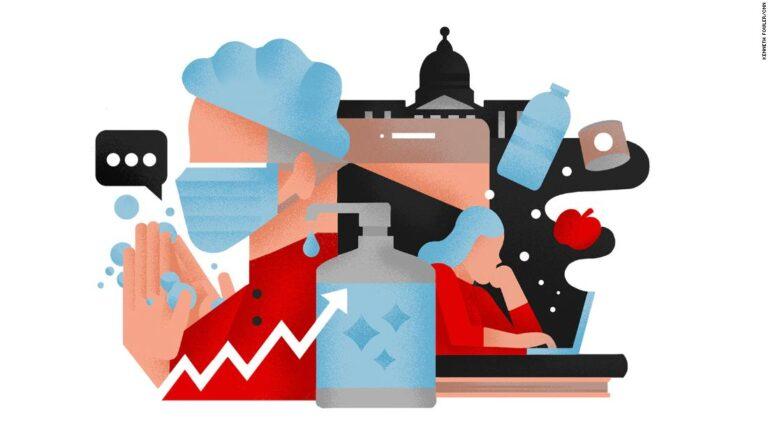Turbo cancer refers to a situation in which individuals with a history of cancer in remission experience a reactivation or worsening of the disease after receiving COVID-19 vaccines, particularly mRNA vaccines. The global impact COVID-19 has been substantial, leading to widespread infections and significant loss of life across the globe. Vaccines, including Pfizer/BioNTech and Moderna, were developed rapidly and granted emergency use authorization due to their alleged high efficacy in addressing this crisis. However, we now know they gave the governments of the world a different product than the one they mass manufactured. The link between COVID-19 mRNA vaccines and the development of “turbo cancer” is based on doctors, pathologists’ and other health workers observations and tests in clinics and hospitals, as well as peer-reviewed studies that are starting to come out now. What is Turbo Cancer? What is Turbo Cancer?
Turbo cancer refers to a situation in which individuals who have received COVID-19 vaccinations, particularly mRNA vaccines, are experiencing an elevated occurrence of rapidly developing cancers. COVID-19 vaccines have damaged the immune systems of some recipients, induced aggressive new cancers, and triggered flare-ups in those who were in remission from the disease. Individuals with a history of previous cancers, which were in remission, are reportedly experiencing flare-ups due to damage to their immune systems caused by the COVID-19 shots. Moreover, new cancers diagnosed in these cases exhibit larger tumors than ever, showing aggressive growth, rapid spread, and heightened resistance to treatment. Turbo Cancers Caused by mRNA Vaccines Turbo Cancers Caused by mRNA Vaccines
It is essential to note that Pfizer’s COVID-19 mRNA vaccine and Moderna’s have been linked to an increase in turbo cancers unlike anything seen before. According to medical articles, numerous types of turbo cancers arise after vaccination: Lymphoma Brain cancers Breast cancer Colon cancer Lung cancer COVID-19 Vaccines and “Turbo Cancer”: Hematologic Malignancies COVID-19 Vaccines and “Turbo Cancer”: Hematologic Malignancies
Patients with cancer have a higher risk of COVID-19 complications, including death. Researchers have found that patients with cancer faced a greater risk of SARS-CoV-2 infection and experienced worse outcomes, compared to patients without cancer. Patients with hematologic cancer and those undergoing active cancer treatment faced a particularly elevated risk; COVID-19 vaccines elevated the development of cancer cells in these patients. Turbo Cancer is used to describe an unusually aggressive, fast-growing form of cancer. One patient with pre-existing hypertension, hypercholesterolemia, and type 2 diabetes, developed swollen lymph nodes after a flu-like syndrome. The lymphoma diagnosis was made based on a biopsy performed post-vaccination. Angioimmunoblastic T-cell lymphoma is known for its poor prognosis, and this patient had an advanced stage of the disease at the time of diagnosis. Before chemotherapy, the patient received a vaccine booster and reported subsequent swelling of cervical lymph nodes. COVID-19 V accines and Breast Cancer COVID-19 V accines and Breast Cancer
Individuals with a weakened immune system, known as immunocompromised, receive different COVID-19 vaccine recommendations. Breast cancer treatments, including chemotherapy, targeted therapies, and immunotherapy can weaken the immune system, so people in this category might achieve a different level of COVID-19 immunity than those with a healthy immune system. However, not everyone with a history of breast cancer is considered immunocompromised; it depends on factors like the type and timing of treatments and other health conditions. NOTE: Swollen lymph nodes are a reported side effect of the vaccine, particularly after the second shot. While this may be concerning during cancer screening due to immune response triggering, it’s a normal reaction. Some individuals have experienced soreness or swelling in the armpit area after vaccination. Understanding the I mplications Understanding the I mplications
Governments around the world are now warning about an increase in turbo cancers as a result of widespread vaccination use. A few days ago, Florida’s Surgeon General Joseph Ladapo asserted that the covid vaccines should be halted because the shots contain components that pose a unique and heightened risk of DNA integration into human cells, potentially causing cancer. Future Impact of Turbo Cancers Future Impact of Turbo Cancers
Albert Bourla (Pfizer CEO) discussed the potential impact of “turbo cancers” in a media interview, emphasizing their effect on 33% of the population. He also mentioned new cancer treatments described as “missiles” targeting these cancers, and highlighted Pfizer’s ability to produce these treatments at an unprecedented scale, comparable to its mRNA vaccine production. Scary. Studies in the United States are examining the impact of the COVID-19 vaccine on cancer patients. Initial findings suggest that outcomes vary for each patient, depending on factors such as the type of cancer, ongoing treatment status, and the immune system’s functionality. If you have a history of a specific type of cancer and are considering multiple injections, please don’t. Do your due diligence…research! Your physician may not know as much as you do about the risks. The Bottom Line The Bottom Line
Turbo cancer refers to a situation in which individuals with a history of cancer in remission experience a reactivation or worsening of the disease after receiving COVID-19 vaccines. This term implies that these cancers become more aggressive, spread rapidly, and exhibit resistance to treatment. Individuals with cancer may face increased risks from COVID-19 shots. Sign up below for my free 29-page Cancer Support Diet Program. If you signed up previouslyplease do so again because there was a glitch in the pdf I sent you, and in my email program – I lost you!
This content was originally published here.



















